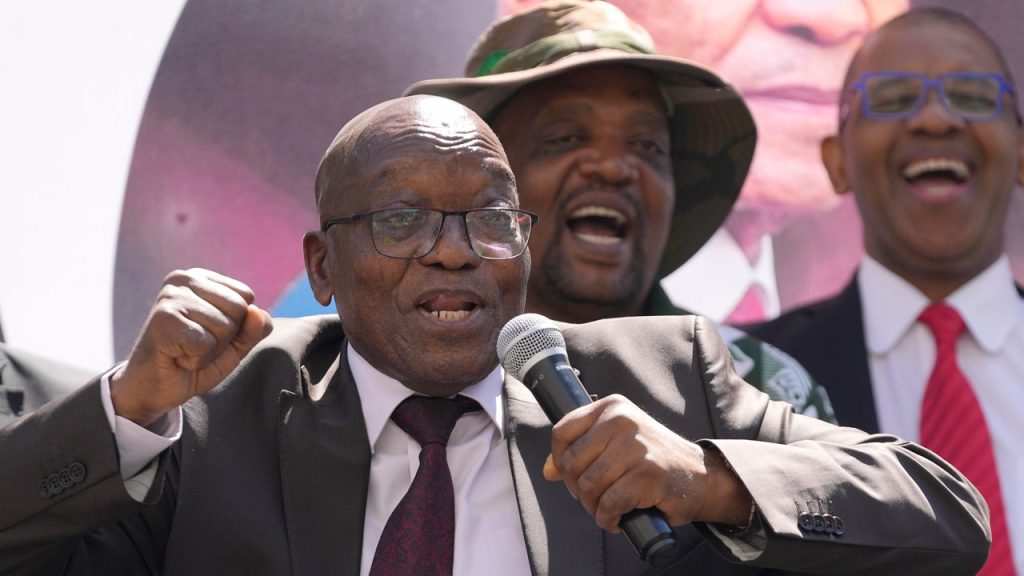Jacob Zuma, the former president of South Africa and leader of the African National Congress (ANC), has reemerged in the political arena with a new party ahead of the country’s upcoming national elections. Zuma, who was forced to resign in 2018 amid corruption allegations, has launched a new political party called UMkhonto WeSizwe. This move threatens the dominance of the ANC, which has been in power since the end of apartheid. Zuma’s return to politics comes as polls and analysts predict that the ANC may receive less than 50% of the votes in the upcoming election, which would be a historic development in South Africa’s democracy.
Zuma has been a prominent figure in South African politics for decades, having played a key role in the struggle against apartheid and rising through the ranks of the ANC to become the country’s president in 2009. His presidency was marred by allegations of corruption and nepotism, including accusations that he allowed his close friends, the Gupta family, to make government appointments in exchange for lucrative business deals. These accusations eventually led to Zuma being removed from office in 2018, and he was later convicted and sentenced to jail for refusing to testify in a corruption inquiry.
Zuma’s new political party, UMkhonto WeSizwe, has garnered support from his loyal base in KwaZulu-Natal province, where he has strong ties with the Zulu ethnic group. The party’s name, taken from the ANC’s former military wing, reflects Zuma’s continued appeal to his supporters as a revolutionary figure. Despite facing legal challenges from the ANC over the use of the party’s name and logo, Zuma has continued to campaign vigorously, delivering passionate speeches and rallying his supporters.
The emergence of Zuma’s new party has added further pressure on the ANC, which was already facing challenges from other opposition parties. Polls suggest that UMkhonto WeSizwe could become one of the country’s major opposition parties and potentially play a significant role in the election. Zuma’s return to politics has injected a new dynamic into the South African political landscape, with the possibility of the weakening ANC having to form coalitions in order to govern. As the election approaches, the political future of South Africa hangs in the balance, with Zuma’s reemergence likely to have a lasting impact on the country’s democratic process.













